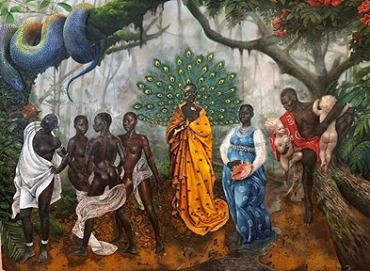
Societal role of sexual and reproductive health
Written by Ms Vanessa Mpatlanyane
November, 7, 2020
“Babies are items you buy at the big shop Hospital”. “Boys only want sex”. “Love is a drug”. “Girls just wanna have fun”. These are just a few thoughts among many that illustrate society’s diverse opinions on sex, sexuality and reproduction. Whether you agree with them, or occasionally have a fighting match with your parents about it, sexuality is a central part of our social existence.
Sexual practices and philosophies greatly depend on the underlying beliefs and norms of a community. In communities where the body is thought to have its own desires and rhythms, conversations around sex are different from societies that think differently about the body. Where the body is considered sacred and pure, sex and sexuality are explored in hushed tones. Neither society is better or worse, they are simply different because of beliefs regarding health, the nature of humankind, the nature and will of the gods/God, are all thought about differently. That ofcourse is not to say consequences of various sexual practices cannot be assessed as harmful or healthful.
What we think and believe, what we practice and preach about sexuality and reproduction is very much a reflection of the society and times we live. That is why social scientists will often look at rape, homosexuality, teenage pregnancy, infertility, infant mortality etc. as only a piece of a much bigger puzzle. Other happenings in society can help us explain emerging and long-standing trends.
The increase in women in education and the workplace for instance, helps us explain why more women are having children later in life, if at all, and why advocacy for contraceptives has increased over the years. Unemployment, gansterism and violence can help us make sense of high rape rates in South Africa. Identity politics and questions around what it means to be a woman, on the other hand, can help us understand why it’s usually women who take the hardest knock when a couple struggle to conceive.
A close look at socio-economic status, beliefs about reproduction, religious convictions among other things can help us explain a great deal. Did you know social scientists can also help us understand why it is the peach and egg-plant emojis that are used as reproductive organs?! Yep, even something that seems that silly can tell us a lot about existing ideas around sex, sexuality, pleasure and communication. With a shared network of signs and symbols among young people, online users know the meaning of these signs, a meaning that is generationally specific. Best believe, your 60-year-old mom who only uses the phone to call is not going to think anything of a perfect peach.
This shows us that society, its norms and practices, has a strong influence on our sexual practices and beliefs. It also informs our notions of sexual fear and sexual pleasure. Yep, society informs your experience of sexual pleasure too! That is why the marketing and entertainment industry is a banging business. The Twitter streets are full of #hashtags on ‘how to please your man, or your woman’, ‘what is sexy and what is not’. Without us even knowing it, our ideas about sex and sexuality are being shaped every day. Much of what we believe is based on our individual taste and decision, is actually a reflection of the times and communities we live in.
This is not to say we cannot, or should not, take individual responsibility. Conformity tells us how to be human. Think about Tarzan. Socialised by apes, he was in fact, socially an ape. It’s the same with humans. Being human is learned through mimicry. Without socialisation, most women would freak out at the sight of a bulging stomach. They would not know they are pregnant. Let alone how to care for an infant. Without social agreement that forced sex is rape, more people would suffer sexual abuse in silence. Social agents, primarily other people, teach us how to be. It’s true for all aspects of life.
As we get older though, the ability to decide whether or not we take that teaching becomes our choice. Unfortunately, the responsibility and consequences of those choices also become ours to bare. We are presented with multiple options to choose from, each with its own outcomes. Nevertheless, whatever choices we have, ideas of whether those choices are good or bad, is to a great extent influenced by what we know from others.
Ubusha Bami futhi yimi lo – My youth and this is me! ©